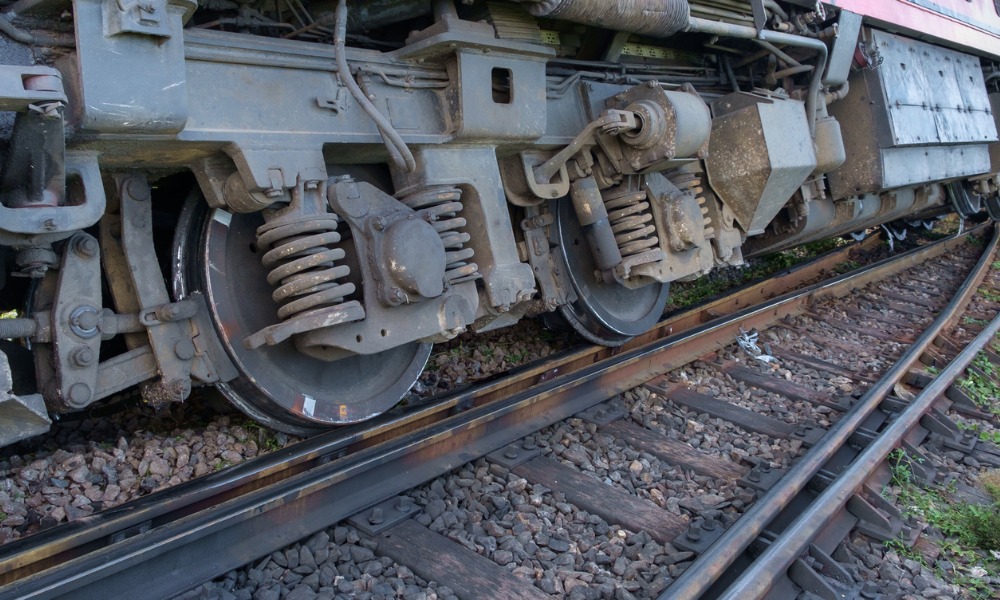Transport Canada conducting performance inspections at CP's Toronto Yard, inspections focused specifically on switching/securement activities nationally

There were shortcomings during the hand brake test on rail cars in Canadian Pacific Railway Company’s (CP) Toronto Yard and that led to a derailment incident two years ago, according to the Transportation Safety Board of Canada (TSB).
The incident happened on March 13, 2022, when 103 rail cars ran uncontrolled for about 3200 feet down a descending grade of a track in Toronto Yard.
The seven leading cars derailed, three of which were loaded with sulphuric acid.
There were no leaks, and no one was injured from the incident.
TSB’s investigation finds insufficiencies in brake test
TSB’s investigation found that a CP train crew initially secured the cars using six hand brakes, and then performed a hand brake effectiveness test to confirm that there was sufficient brake force to keep the rolling stock from moving on its own. The crew judged the test to be successful and applied the emergency air brakes.
The following morning, the air brakes were released in preparation for switching. When the air brakes on the last car were released, all 103 cars began to roll uncontrolled with the six handbrakes still applied.
The stationary cars had been secured for about 18 hours with six hand brakes and the emergency air brakes before it ran uncontrolled down a 0.45% grade after the air brakes were released, said TSB.
“The force applied by the locomotive to the movement during the hand brake effectiveness test and the time allowed for the cars to react were insufficient for the slack to fully adjust to the cars being cut off before the locomotive engineer applied the independent brake,” said TSB.
“Consequently, the hand brake effectiveness test was incomplete and the crew were unaware that the number of hand brakes used to secure the cars was insufficient for the descending grade.”
Also, the impacts of slack action on various combinations of grades specific to G Yard during the hand brake effectiveness test “were not addressed in CP’s instructions to crews and were not fully considered when testing was performed to verify the securement of the cars,” said TSB.
Risks could increase if CP’s safety management system is not engaged when a change to railway operations occurs.
Safety actions following the incident
Following the incident, nn March 13, 2023, the TSB issued Rail Transportation Safety Advisory Letter 03/23 “Switching and car securement practices at Canadian Pacific Railway Company’s Toronto Yard” to Transport Canada (TC).
The letter stated that TC should audit CP’s switching and car securement practices for the yard to ensure that adequate procedures are in place to prevent uncontrolled movements.
In response, TC planned, for 2023 to 2024, to conduct eight crew performance inspections at CP’s Toronto Yard and 60 inspections focused specifically on switching/securement activities nationally.
TC will also continue to collect and analyze uncontrolled movement data to inform further oversight activities, including an audit, as appropriate.





